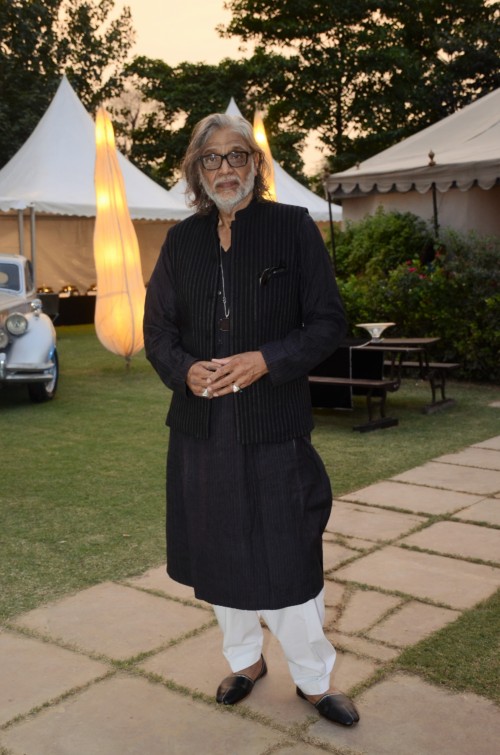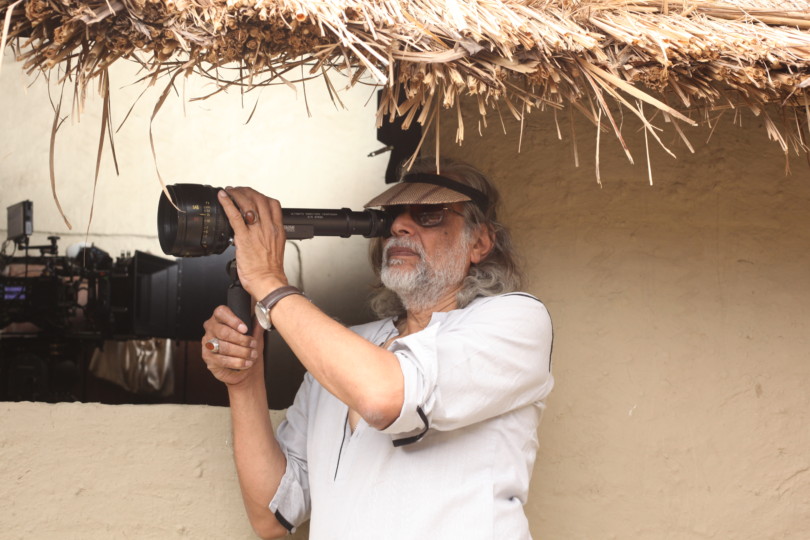By Natalia Ningthoujam
Lucknow– Filmmaker-fashion designer Muzaffar Ali believes he has a “global outlook to music”, but the director of the classic Bollywood movie “Umrao Jaan” finds electronic music “really disturbing and revolting” and something that has changed India’s “soundscape”.

“Electronic music is very revolting in sound unless you use it very judiciously. In India, what happens is … particularly because of Bollywood influence, they just work on pumping up the beats. They make it too insensitive,” Muzaffar Ali, who recently wrapped up the fourth edition of the Wajid Ali Shah Festival, told IANS at his House of Kotwara residence here.
And that’s why, he thinks, there are “more misses than hits”.
“One thing is ready to give way to the next thing because they don’t have the holding power. Only things that are not electronically charged will have a long shelf life,” he said.
The one-day Wajid Ali Shah Festival, which celebrated the magic of the artistic brilliance of the last nawab of Awadh, took place earlier this month. It presented a dance ballet, “Rang” — under Muzaffar Ali’s direction — that offered a tribute to the classical dance form Kathak and to the light classical musical form Thumri.
Comparing it with “electronically-charged music”, the filmmaker, amidst a distracting car honking sound, said: “Electronically-charged music has too many similarities with any other electronically-charged music. But this kind of organic music has a lot of personality. The audience somewhere deep down is very sensitive.”
As much as he is passionate about music, the 72-year-old also makes it a point to show the beauty of his home city through his movies or his and wife Meera’s international couture brand, Kotwara.
Should the city of “nawabs and kebabs” have an ambassador?
“I don’t think Lucknow needs that kind of an introduction. It needs to be felt emotionally, artistically, intellectually and philosophically to become a part of your experience. Any particular face will have strong limitations,” the Padma Shri awardee said about taking inspiration from the city.
“So you just need… Maybe things like a festival, ‘Umrao Jaan’ (that starred veteran actress Rekha as a courtesan)… They give nice insights into Lucknow and then it’s your own discovery. But unfortunately, what happens is when people see ‘Umrao Jaan’ and then they come and see Lucknow, they get shocked,” he said.
Why shocked?
“Of course, it is below their expectations. First of all, the traffic is bizarre. I sit here in Qaiserbagh which was a creation of Wajid Ali Shah and I hear non-stop honking. There is a beautiful library in front of me. I don’t know how can people sit there and study,” said the artiste, whose house is located near Amir-ud-daula Public Library — a heritage library that houses rare manuscripts and more.
“Qaiserbagh was a paradise and to find hell in paradise, we need to do something… whichever government it is,” added the multi-faceted artiste, with his hands placed on a long dining table with cutlery and clear glass candle holders, at his residence.
Lucknow boasts of great architectural structures like Bara Imambara, Baradari and Dilkusha Palace. He says those buildings also need sensitivity.

“You can’t have garbage around a building. The concept of ‘bagh’ in Lucknow is very poor and we need to celebrate the ‘bagh’. It was a garden city. Garden is the biggest symbol of poetry,” said Muzaffar Ali.
While his work reflects his love for the city, his son Shaad Ali’s movies like “OK Jaanu” and “Saathiya” generally have Mumbai as a backdrop.
“I was born here and have been living here for long. He (Shaad) has not. His mother (Subhasini) is from Kanpur; so he has more connect with Kanpur. He knows a little bit about Lucknow because he has to,” said Muzaffar Ali.
When can the audience see the grandeur of Lucknow once again in his films?
“Film is a big dream and there is a big bad world around and there are sharks. There is also another sublime space which you can always work with… which is more intimate and spiritual. But the film, without a doubt, is a sacred medium. It has a lot of sanctity and we need to keep it like that,” concluded the filmmaker, whose last directorial, “Jaanisaar”, released in 2015.













